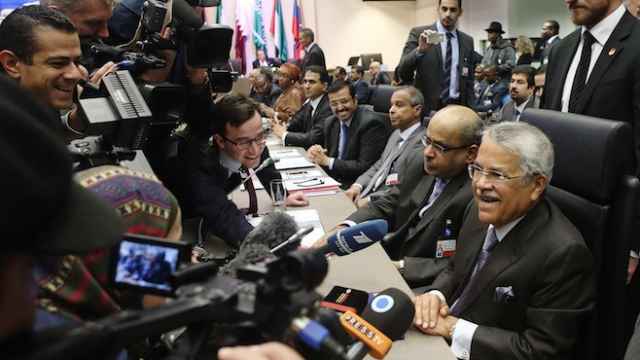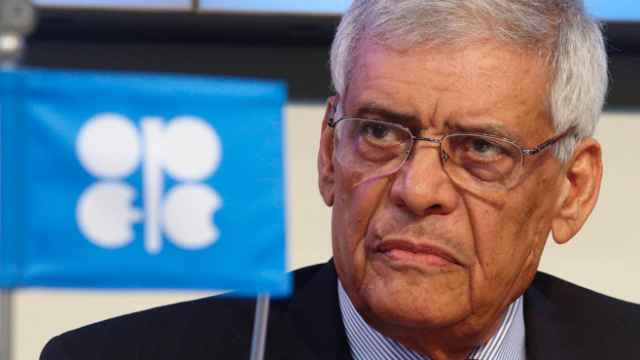Russia's most powerful oil official Igor Sechin said in an interview with an Austrian newspaper that oil prices could fall below $60 by mid-way through next year.
Sechin, chief executive of Rosneft, Russia's largest oil producer, also said U.S. oil production would fall after 2025 and that an oil market council should be created to monitor prices, the same day the OPEC cartel met in Vienna and left its output targets unchanged.
"We expect that a fall in the price to $60 and below is possible, but only during the first half, or rather by the end of the first half (of next year)," Sechin told the Die Presse newspaper.
On Thursday, OPEC decided against production cuts to halt a slide in global oil prices, sending benchmark Brent crude plunging to a fresh four-year low below $73 a barrel. Russia is not a member of OPEC.
Sechin, who met representatives from world oil powers in Vienna earlier in the week, said he believed Russia had the potential to cut between 200,000 and 300,000 barrels a day of production if prices remained low.
On U.S. oil production, Sechin said: "After 2025, the production volumes will decrease, namely because of the resource base, to the extent that we know it today."
Earlier on Thursday, Rosneft said in a statement that OPEC's decision to leave its output unchanged would not affect the work of the company.
A Message from The Moscow Times:
Dear readers,
We are facing unprecedented challenges. Russia's Prosecutor General's Office has designated The Moscow Times as an "undesirable" organization, criminalizing our work and putting our staff at risk of prosecution. This follows our earlier unjust labeling as a "foreign agent."
These actions are direct attempts to silence independent journalism in Russia. The authorities claim our work "discredits the decisions of the Russian leadership." We see things differently: we strive to provide accurate, unbiased reporting on Russia.
We, the journalists of The Moscow Times, refuse to be silenced. But to continue our work, we need your help.
Your support, no matter how small, makes a world of difference. If you can, please support us monthly starting from just $2. It's quick to set up, and every contribution makes a significant impact.
By supporting The Moscow Times, you're defending open, independent journalism in the face of repression. Thank you for standing with us.
Remind me later.






